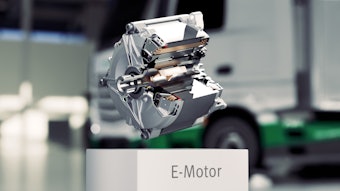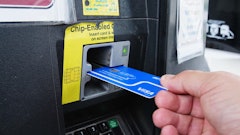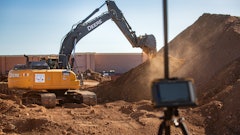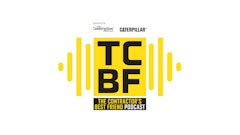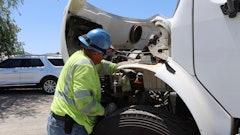
Companies of all sizes buy used equipment. In the asphalt industry, it can represent a fantastic value, especially for up-and-coming companies, as the larger machines needed for paving jobs can be costly.
And while most used equipment purchases go off without issue, there is a circumstance that buyers should be aware of, and that’s whether the used equipment in question has a hidden lien on it. Because having a hidden lien can be problematic.
Here’s an example: your paving company is looking for a used steamroller. You stumble upon one offered by another company. After a thorough inspection, you determine it checks all the boxes and is perfect for your needs. The seller has owned it free and clear for a few years, and even has a payoff letter they show you. You buy it.
Fast forward six months: The seller’s bank reaches out to you. It appears the seller defaulted on a different loan, and the steamroller you purchased was part of a blanket lien. The bank is claiming ownership and will move to repossess it. An immediate call to your lawyer confirms the bank is correct – they can legally take your steamroller. Even worse, unless the loan-defaulting seller is going to give you a refund, you’ll lose the money you paid, too. I don’t have to tell you there’s a slim chance of a refund happening.
This scenario, though rare, demonstrates that buying used equipment is sometimes not as straightforward as it first appears, especially when you are buying from a private seller.
Uncovering Used Equipment Liens
Finding out if there’s a lien on a particular piece of equipment typically entails a Uniform Commercial Code (UCC) search – this will generally expose most existing liens (note the words "generally" and "most").
The party responsible for conducting the UCC search varies. Most authorized dealers or resellers will usually perform one when first obtaining the equipment for resale. When financing enters the picture, the lender might conduct a search as well (as a standard practice, my company, Crest Capital, always performs one). Alternatively, a conscientious private seller might conduct a search to show a clean title. If none of these avenues have been pursued, it's prudent for buyers to conduct a UCC search themselves.
Lien-Free Titles Can Prove Elusive
It's crucial to understand that a UCC search does not guarantee a completely lien-free title for piece any used equipment. In fact, nothing can 100% guarantee a clear title. Several factors contribute to this uncertainty. One is the complicated paper trails inherent to used equipment, especially those involving multiple owners. Moreover, the variables of a UCC search can have potential pitfalls, ranging from geographic considerations (locale searched) to clerical errors somewhere along the way (long serial numbers entered by hand, etc.)
However, one of the largest complicating factors is the existence of blanket liens, which was the culprit in my steamroller example earlier.
About Blanket Liens
A blanket lien covers every asset belonging to a company. It’s also a common clause in business loans from banks. For instance, if a company borrows funds to purchase a new vehicle, the blanket lien from that loan encompasses all company assets, even those long since paid off. Our steamroller at the beginning of this article falls under that. This type of lien can also recur with each subsequent loan, often leading to assets carrying multiple blanket liens.
Unfortunately, the fine print containing that blanket lien clause is easily overlooked, so a seller may believe a piece of equipment has a clear title because its own loan was paid off. And since the blanket lien only comes into play when there’s a default, it’s easy to see how these can be forgotten.
(It’s worth noting that if you have any current loans, it’s probable your company’s assets are currently under a blanket lien. If you weren’t aware of that don’t feel bad – most business owners are unaware of this.)
Steps for Businesses to Protect Themselves
Amid this complex lien landscape, companies can take a few simple measures to safeguard against inadvertently purchasing equipment with hidden liens:
1. Buy from an Authorized Dealer: Acquiring equipment from authorized dealers or resellers often minimizes lien-related issues. Dealers typically conduct preemptive UCC searches when procuring equipment, and more importantly, will typically stand behind the equipment being lien-free (make certain to ask about this.)
2. If Buying Private, Prioritize UCC Searches: When buying from non-dealer private sellers, making certain a UCC search is conducted is paramount. Like I mentioned earlier, it’s not 100%, but it should turn up most liens (including blanket liens). In addition, buying used equipment from the original owner makes issues easier to uncover. Multiple owners can complicate things.
3. Clear Paper Trails are Optimal: Having a complete paper trail all the way back to the manufacturer helps. This includes bills of sale and payoff letters. Tracing the paper trail back to the original manufacturer or dealer enhances transparency (personally, I would probably pass on used equipment with a broken paper trail).
The market for used equipment is vibrant, and a significant majority of transactions happen without lien-related complications. Relying on reputable sellers, diligent UCC searches, and clean paper trails can mitigate potential lien issues to a great extent.
Ultimately, however, the buyer bears the responsibility for any ramifications from potential lien issues, risking not only the equipment itself but also the financial investment made. By embracing caution and taking proactive measures, businesses can navigate the used equipment market with greater peace of mind.


